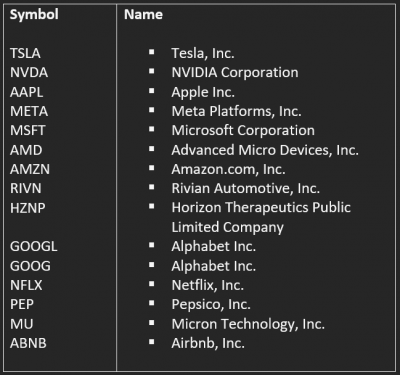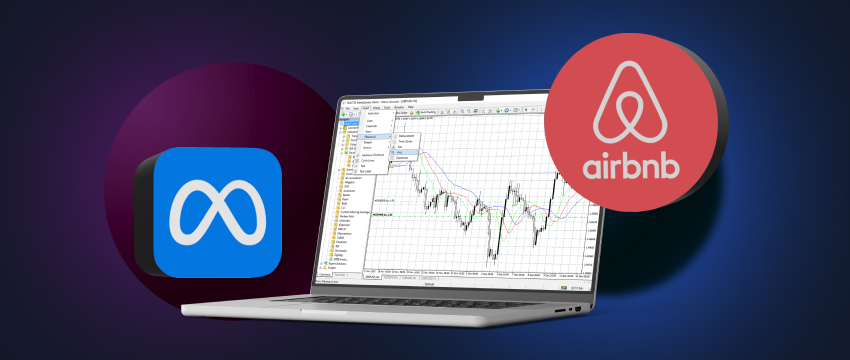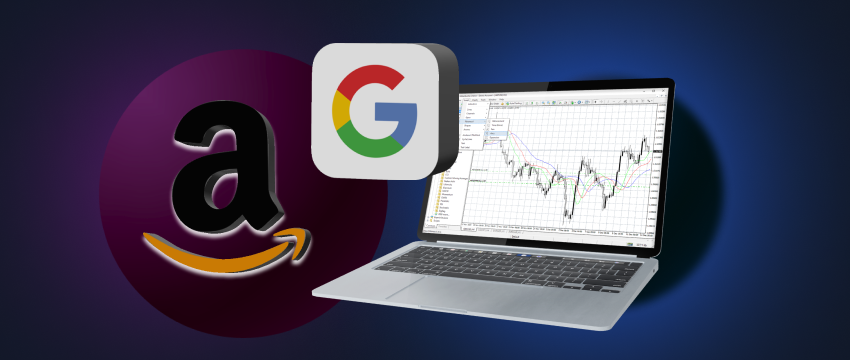The stock market is a dynamic space, so much so that the performance of stocks can change incredibly quickly. Staying updated on market conditions is key to minimizing any potential risk to a trader’s investments. Knowing what stocks to trade takes research and understanding to come to an informed decision.
CFD stock trading
CFD stock trading is a popular means of trading stocks among global traders. CFDs or Contracts for Difference allow traders to speculate on the prices of different underlying assets. For example, stocks, without having to take ownership of them.
Instead, parties to the contract (broker and trader) agree to exchange the difference in the price of the underlying asset between the contract’s opening and closing positions.
Trading stock CFDs is very similar in trading any other asset, be this forex, commodities, indices, etc. Once you’ve done your research on your preferred stock, you’ll open a position, specifying whether you want to go long or short based on your price prediction. While the position is open, constant monitoring is key to be able to anticipate any sudden price movements. Further, proper risk management measures should be in place, i.e., stop loss or take profit orders. This is to ensure your funds are safeguarded and that the position is automatically closed when a certain price level is reached.
Using leverage
CFD traders regularly use leverage to be able to open larger positions without having to pay for the full value of the positions upfront. Rather, the trader pays a deposit which is commonly referred to as margin. Margins vary across markets and are typically given as a percentage. This tells the trader the sum that they’ll be required to deposit (i.e., what portion of the position’s full value). Trading on leverage offers a trader a way to maximize trading opportunities and it may also magnify returns if prices move in the direction a trader predicted. However, while leverage increases the potential for amplifying profits, it also exposes a trader to the substantial risk of losing their capital.
Popular stocks by dollar volume
There are a wide variety of stocks that a trader can choose to trade. According to Nasdaq today, some of the most active by dollar volume include:

Trading stocks with T4Trade
At T4Trade, you can get exposure to some of the world’s largest companies by trading CFDs on shares. The broker offers access to a range of popular company shares, enabling you to diversify your investment portfolio. This includes investing in companies like Nike, Microsoft, Google, Apple, Amazon, Tesla, and Facebook for as little as 0.1 shares.
T4Trade traders also enjoy fast execution, low spreads, flexible leverage, and stock CFDs with zero MT4 commission charges. Become a T4Trade trader and also take advantage of both rising and falling markets by going long or short on stock prices.
What moves the price of shares?
The stock market is inherently unpredictable, with share prices impacted by an interplay of various factors. Let’s look at what some of these are:
- Earnings reports: typically released every quarter and once a year. These reports include critical financial data like revenue, profit, and earnings per share, which traders will use as part of their fundamental analysis to make trading decisions. The information presented in these reports can influence a company’s share price.
- Macroeconomic data: this includes data releases like gross domestic product (GDP) and retail sales which can influence company share prices significantly. Strong data can make prices rise, while weak data can make them fall.
- Market sentiment: refers to the psychology of market participants on a particular stock. Ultimately, sentiment can cause demand to fluctuate.
- Interest rates: when interest rates are low, the stock market might have greater activity because more people may invest in stocks and shares to achieve greater returns than saving their money in a bank account.
Using an Economic Calendar
An economic calendar is a particularly useful tool for a CFD stock trader. It provides a schedule of economic events and releases that can potentially impact financial markets, and consequently, company stocks. In particular, traders who incorporate fundamental analysis into their CFD stock trading may use economic calendar data to analyse broader economic health and make decisions about what stocks are worth trading.
T4Trader offers its traders an innovative, real-time Economic Calendar to assist them in their CFD stock trading endeavors. The calendar enables traders to track current and future financial activities and market-moving indicators (e.g., GDP, IPI, PMIs, etc) at their fingertips. It provides useful information like precise dates and times of releases, and other critical data.

Demo trading account to become a skilled CFD trader
Signing up for a demo trading account is a great way to learn how to become a more skilled CFD stock trader. A demo trading account will provide you with a simulated trading environment, with real-life market conditions, allowing you to get a better feel for trading.
You can use the account to practice technical and fundamental analysis to assess how stock prices are being impacted. You can implement various trading strategies and measure outcomes to determine what works, and what needs tweaking. Using virtual funds, thereby safeguarding your own money, you can execute and monitor trades using a variety of trading tools to gain crucial expertise. Consider keeping a trading journal to record your trades, strategies, and outcomes.
This will assist you in evaluating performance and making enhancements. Once you feel confident and are consistently making a profit on trades on the demo account, consider transitioning to a live trading account. Start with a sum of capital that aligns with your budget, risk tolerance, and level of expertise, and gradually increase it as you gain more experience.

Trading with T4Trade
T4Trade is a powerful broker that appeals to traders with different levels of trading expertise across the globe. This is largely due to its flexible and comprehensive offering, such as multiple trading account types, flexible leverage, competitive spreads, fast execution speeds, and quick fund withdrawals and/or deposits.
Additionally, T4Trade’s top-tier multi-lingual customer support team provides a 24/5 service to traders worldwide, be this through email, telephone, or live chat. Notably, T4Trade also provides its traders with a wealth of vital educational resources relevant to trading through its T4Trade Academy. The Academy seeks to enhance a trader’s knowledge on a range of topics through webinars, podcasts, trading videos, e-books, and even Live TV.
Further, the broker’s blog page, the T4Trade Journal, offers traders valuable insights into the latest news and the world of trading. A variety of blogs answer many of the most pressing questions traders are asking and provide useful trading tips and strategies to broaden one’s knowledge.
Disclaimer: This material is for general informational and educational purposes only and should not be considered investment advice or an investment recommendation. T4Trade is not responsible for any data provided by third parties referenced or hyperlinked in this communication.




